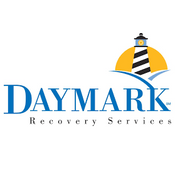Substance Abuse Disorders & Comorbidity: What You Should Know

In the world of mental health, substance abuse presents a prevalent and difficult problem for many patients. When a substance disorder occurs in someone who has or has had another mental illness, it’s called comorbidity. Below is a brief overview of this condition and how it affects treatment.
Comorbidity in Mental Health & Its Relation to Substance Abuse
Comorbidity refers to the presence of two or more mental illness concerns occurring in one person, whether simultaneously or at different times. Bipolar disorder and anxiety, depression and substance abuse, and bipolar and substance disorders are common comorbidity combinations. The individual’s illnesses involved in the comorbidity often worsen symptoms and prognoses for both illnesses.
When a substance disorder is one of the illnesses involved, it changes the structure of the individual’s brain, shifting priorities and negating impulse control. People who have mental illnesses are more likely to develop a substance problem, and vice versa. According to the National Institutes of Health, having either a mental illness or substance use disorder makes you 50% more likely to develop the other.
How Substance Use Comorbidity Affects Treatment Options
 Having comorbidity of any sort means that treatment needs to individually and comprehensively treat both conditions. This means using different therapies and medications to target the individual conditions separately while also teaching coping skills to help handle both together.
Having comorbidity of any sort means that treatment needs to individually and comprehensively treat both conditions. This means using different therapies and medications to target the individual conditions separately while also teaching coping skills to help handle both together.
Therapies such as cognitive-behavioral therapy and dialectical behavioral therapy are effective at treating persons with comorbid conditions, and medications targeted toward specific substances and illness types are most effective when combined with a form of these.
If you’ve been diagnosed with a substance abuse disorder or think you have comorbid conditions, Daymark Recovery Services offers experienced counseling services for individual and comorbid disorders. Located in Lexington, NC, the CARF®-accredited agency serves over 28 counties in North Carolina with compassionate, discreet, and affordable counseling services that include medical detox, outpatient treatment, intensive in-home treatment, psychosocial rehab, and connecting you with valuable resources. Learn more about their outpatient substance use program online, then call (336) 242-2450 to arrange an evaluation.
About the Business
Have a question? Ask the experts!
Send your question

